This blog post is a reflection from Lulu Zhou about her CCE Cross-Cultural Community Service Grant-funded project in China.
The Dandelion School—one of the most successful, exceptional migrant schools with its strong educational resources and international connections—is a NGO middle school that specifically serves migrant children in southern Beijing’s urban-rural fringe. While studying in Beijing during the Fall 2017 semester, I volunteered at the Dandelion weekly to tutor a 9th grade English reading class to contribute to students’ improvements in English speaking, reading, and grammar. In addition, I translated for Dandelion educators and Finnish educators during a 3-day international education exchange seminar/training, in which Finnish educators shared Finnish education theories and practices with us.
China’s rapid urbanization has led to large-scale migration from rural to urban areas, in which inequalities are expanding between rural and urban citizens. The deeply entrenched residential registration system (“hukou”) restricts one’s social benefits (e.g., public schools, healthcare, property rights, etc) to one’s birthplace, dividing citizenship into rural and urban. Thus many migrants and their children—who make up a large percentage of the urban population—are unable to enjoy many social welfares in their new homes.
For example, migrant children face many institutional barriers that prevent them from attending public schools in cities. Dealing with issues such as poverty, exclusion, and instability, migrant children are an underserved, underprivileged group that has little access to quality education and social mobility. Individuals founded “migrant schools” in migrant communities in response to the education needs of migrant children. Many migrant schools operate in the grey area because they do not have governmental licensures, which are extremely difficult to obtain in the first place. Indeed, migrant schools have been increasingly facing more restrictions politically, legally, geographically, and socioeconomically especially in mega cities like Beijing.
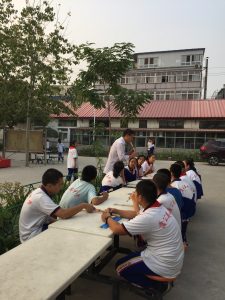
“I gained experience in tutoring English to English-as-second-language middle school students and pretending that I couldn’t speak Chinese when I interacted with them in order to “force” them speak English with me.”
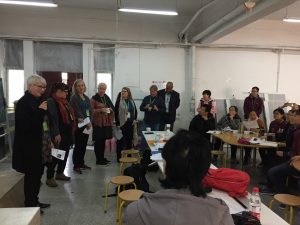
“I tried Chinese-English simultaneous translation for the first time when I was translating for the Dandelion educators and Finnish educators during an international education exchange.”
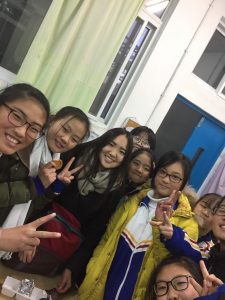
“Translation was challenging but rewarding and helped me improve my language skills.”
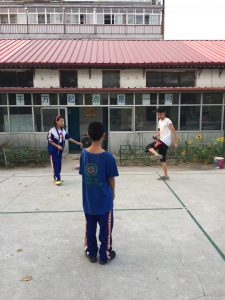
“I hope to raise more awareness through my sociology senior thesis on China’s migrant education issue.”
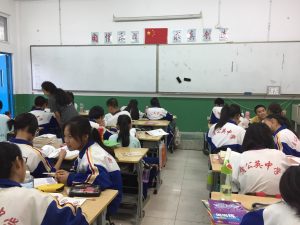
“Contributing to education resources of an underrepresented, underprivileged group and engaging in cross-cultural exchanges are tremendously rewarding. I would recommend everyone volunteering at migrant schools and NGOs; they need more resources serving an under-resourced population.”
Studying sociology and education at Middlebury has reinforced my academic interests in education equity and access, migration, and family and instilled in me a stronger sense of social conscience and responsibility. My volunteering experience at migrant NGOs has not only shown me the educational and social inequalities in a different political, historical and social context, but also broadened my horizon about education generally and my own education specifically. Migrant children’s education is a huge social issue that impacts millions of families’ and their children’s life paths. This was a humbling and inspiring experience that motivated me to do my sociology senior thesis on this topic—I have returned to Beijing during summer 2018 to do my research, which focuses on alumni who graduated from migrant schools.
